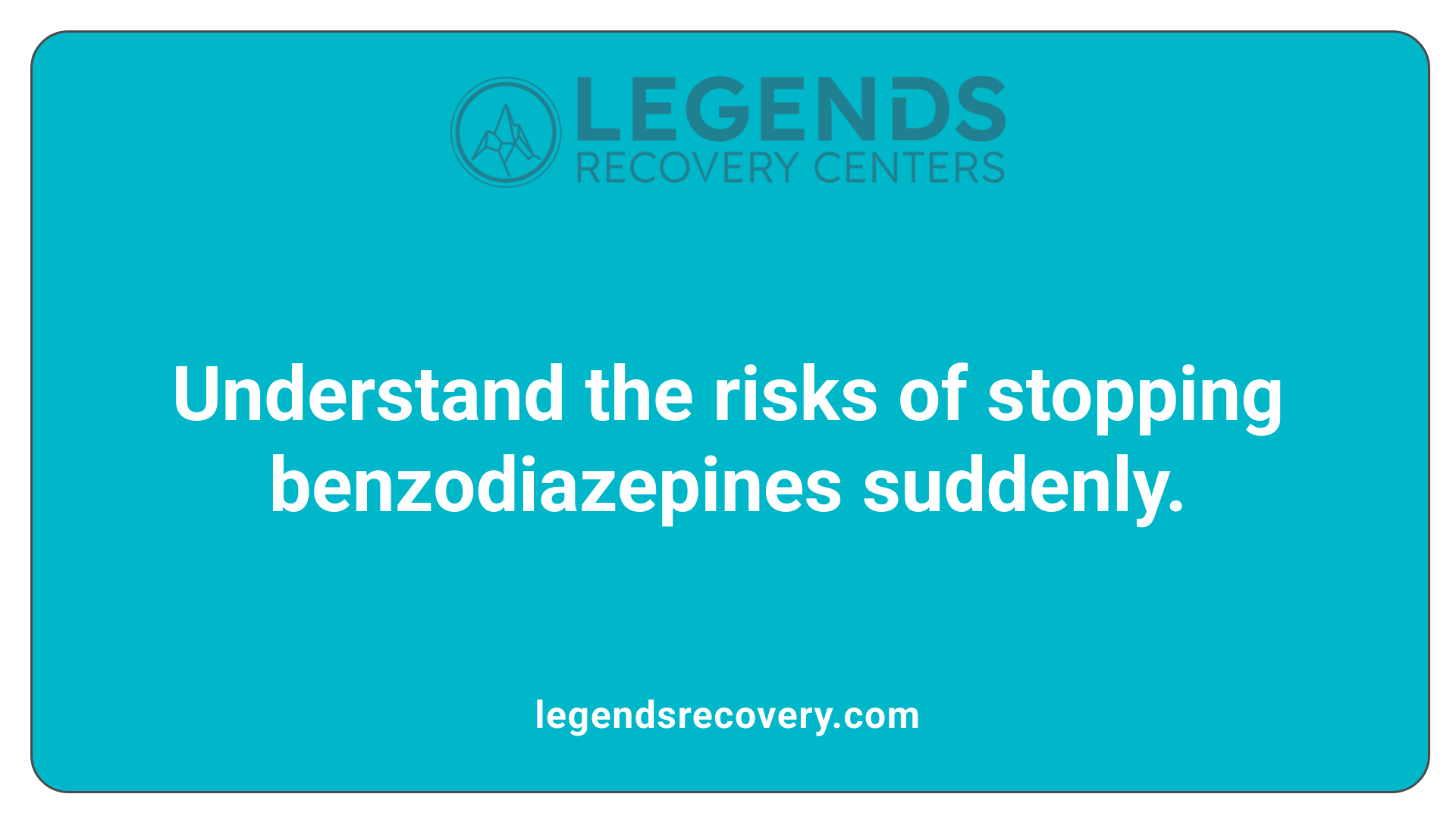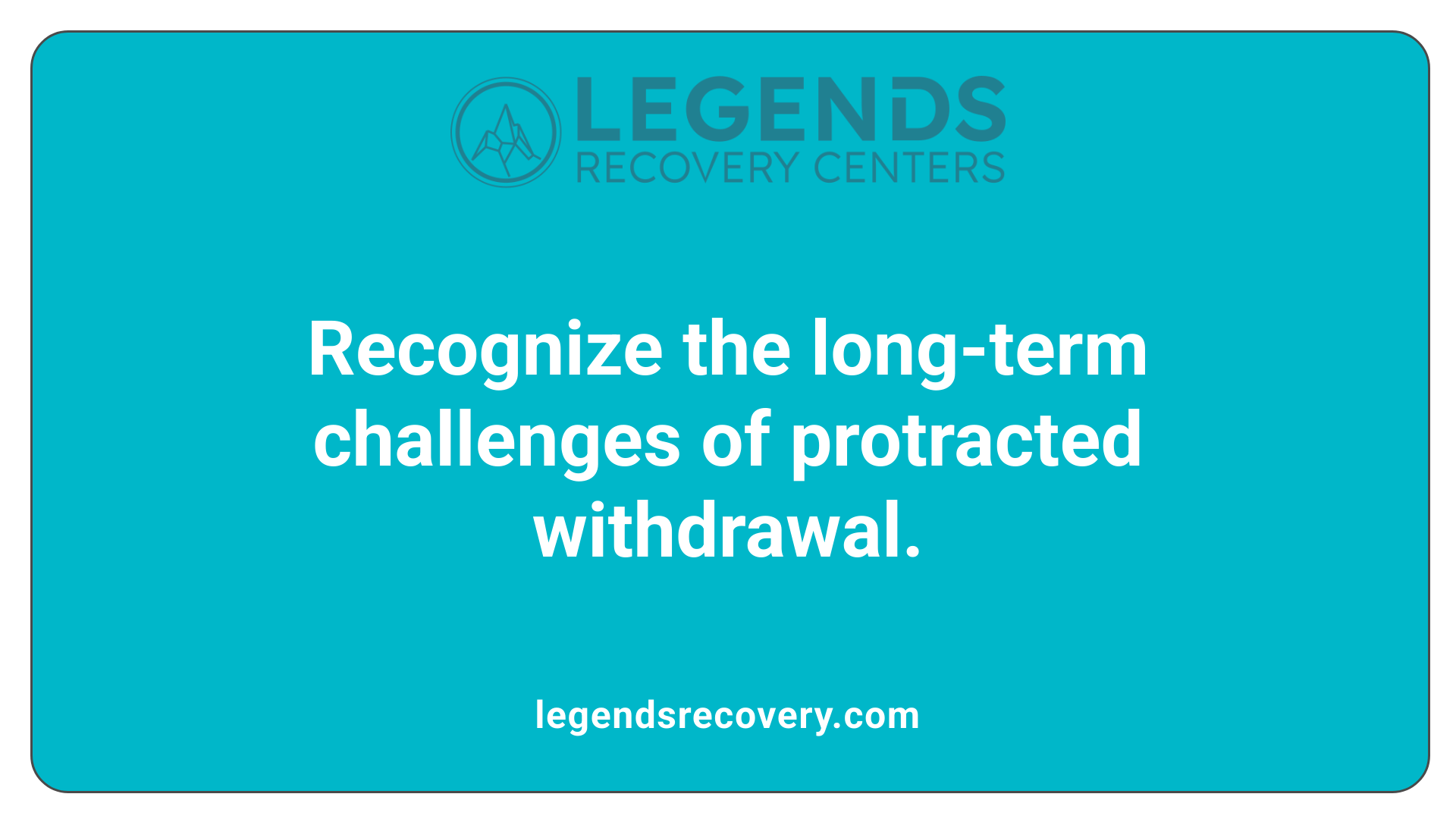Understanding the Dangers of Stopping Benzodiazepines Abruptly

Benzodiazepines, commonly prescribed for anxiety, epilepsy, and insomnia, have a well-documented risk of dependence and withdrawal complications, especially when discontinued suddenly, also known as "cold turkey." Discontinuation should be approached with caution due to severe health risks that accompany abrupt cessation. This article delves into these risks, explores safer withdrawal methods, and provides insights to build awareness about the potentially life-threatening side effects of stopping benzodiazepines without proper medical guidance.

Abruptly discontinuing benzodiazepines like Xanax brings about a withdrawal syndrome. This condition is marked by withdrawal symptoms including sleep disturbances, irritability, anxiety, and tremors. The onset of these symptoms typically occurs within the first week after stopping the medication and can last anywhere from 10 to 14 days. However, it's not uncommon for some individuals to face lingering effects that may extend for several months.
Physiological dependence often develops after prolonged use of benzodiazepines, even at therapeutic doses. It's estimated that around 40% of individuals who have been on benzodiazepines for over six months may experience moderate to severe withdrawal symptoms when they quit suddenly.
Given the risks associated with stopping suddenly, a tapering strategy is strongly recommended. Tapering involves gradually reducing medication to ease withdrawal effects and mitigate complications. Moreover, psychological support through interventions like cognitive-behavioral therapy (CBT) can play a crucial role in recovery.
Seeking medical supervision during this process is essential to ensure a safe and effective withdrawal, thereby preventing severe complications such as seizures or psychological disturbances.

"Benzo Flu" describes a collection of flu-like withdrawal symptoms that many experience when discontinuing benzodiazepines. These symptoms arise as the body adjusts to the absence of the medication, which was originally prescribed for conditions like anxiety or insomnia.
Individuals might face a range of symptoms during this period, including:
To manage the effects of "Benzo Flu," a gradual tapering off of benzodiazepines is essential. This approach allows the body to adjust without severe withdrawal symptoms. Additionally, seeking medical supervision can provide critical support during this process. Medications may be employed to alleviate specific symptoms, alongside therapeutic treatments to enhance overall well-being. Professional assistance remains crucial for those transitioning away from benzodiazepine use, ensuring symptoms are managed effectively.

"Benzo belly" describes a collection of gastrointestinal symptoms that can occur during withdrawal from benzodiazepines. These symptoms may include:
These issues arise as the body adapts to the absence of medications such as Xanax, Valium, or Ativan. Such drugs change the body's chemistry, especially in the nervous system, and stopping them suddenly can cause gastrointestinal disturbances alongside other psychological symptoms.
Psychological factors like anxiety and irritability often accompany "benzo belly." These exacerbated psychological symptoms can make the physical discomfort feel even more pronounced. It’s essential for individuals going through this withdrawal to address both the psychological and physical symptoms for effective recovery.
Managing "benzo belly" typically involves gradual tapering of the medication, allowing the body to adjust slowly. Additional strategies might include:
Since withdrawal symptoms can linger for months, a well-planned approach is crucial for recovery.

Protracted benzodiazepine withdrawal, also known as post-withdrawal syndrome, encompasses a range of symptoms that persist long after the cessation of medication. This may include anxiety, insomnia, cognitive impairments, and gastrointestinal disturbances. Symptoms can linger for months or even years, complicating the recovery process for those affected.
How common is protracted benzodiazepine withdrawal?
Protracted withdrawal affects an estimated 10-15% of individuals undergoing long-term benzodiazepine therapy. Those who stop abruptly face a higher risk of enduring these long-lasting symptoms compared to those who taper their dosage gradually.
The impact of protracted withdrawal can be profound, significantly affecting daily functioning, emotional well-being, and overall quality of life. Many individuals find themselves grappling with persistent anxiety and sleep disturbances, which can hinder their ability to return to normal activities. Compounding this issue is the general lack of awareness regarding protracted withdrawal among healthcare providers, leading to potential misdiagnosis and a lack of supportive care for patients.
This situation underlines the importance of a gradual tapering process and professional monitoring during benzodiazepine discontinuation to minimize the chances of developing such syndromes.
Benzodiazepines, like Xanax, can significantly affect the central nervous system (CNS) by enhancing the activity of GABA (gamma-aminobutyric acid), a neurotransmitter that promotes relaxation and calmness. Over time, the body may develop a physical dependence, leading to adaptation that alters normal brain functions. When these medications are suddenly stopped, the CNS experiences a drastic imbalance, often resulting in various withdrawal symptoms.
When benzodiazepines are discontinued abruptly, a condition known as GABA-underactivity occurs. This shortfall in GABA leads to hyperexcitability in the nervous system, triggering symptoms such as anxiety, panic attacks, and seizures. As the brain struggles to regain its equilibrium, it may react with heightened sensitivity, making the experience of withdrawal particularly distressing and risky.
Severe withdrawal outcomes can range from acute symptoms like insomnia and muscle pain to life-threatening conditions, including seizures and hallucinations. Studies highlight that individuals who quit cold turkey are at a heightened risk of experiencing longer-lasting symptoms, with about 40% encountering moderate to severe effects. This underscores the critical need for medical supervision during withdrawal to mitigate these dangerous outcomes.

Tapering is the recommended approach for discontinuing benzodiazepines like Xanax. This involves gradually reducing the dosage over time, allowing the body's systems to adjust and regain control of GABA activity, which benzodiazepines suppress. A slow taper can help minimize withdrawal symptoms, making the process more manageable and less risky.
Health care professionals strongly advise against quitting benzodiazepines cold turkey due to the severe risk of withdrawal symptoms and complications. They emphasize the importance of medical supervision when tapering to ensure that any potential health risks are monitored and managed effectively.
Opting for a medically supervised detox program is crucial for safely withdrawing from benzodiazepines. These programs provide professional support, helping to manage both the physical and psychological aspects of withdrawal. Medical detox can significantly decrease the risks associated with abrupt cessation, ensuring a safer and more comfortable transition toward recovery.
Stopping benzodiazepines cold turkey poses significant health risks, including severe withdrawal symptoms, potential seizures, and long-lasting central nervous system damage. Such dangers underscore the importance of professional medical supervision and the use of tapering strategies to minimize withdrawal complications. By prioritizing safely-managed withdrawal methods, individuals can reduce the risk of relapse and improve recovery outcomes. Proper education and medical support play vital roles in transitioning off benzodiazepines while safeguarding overall health and wellbeing.